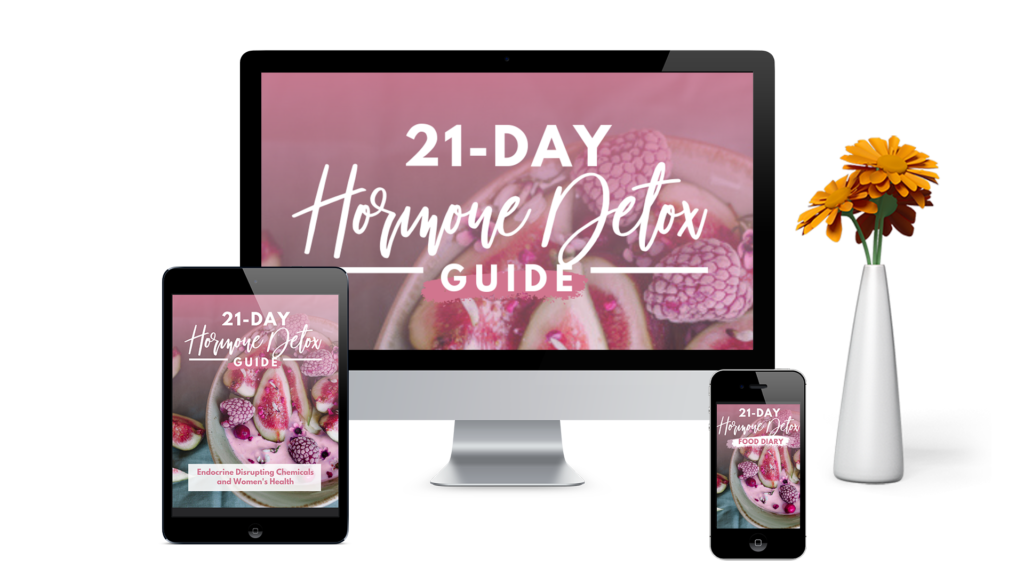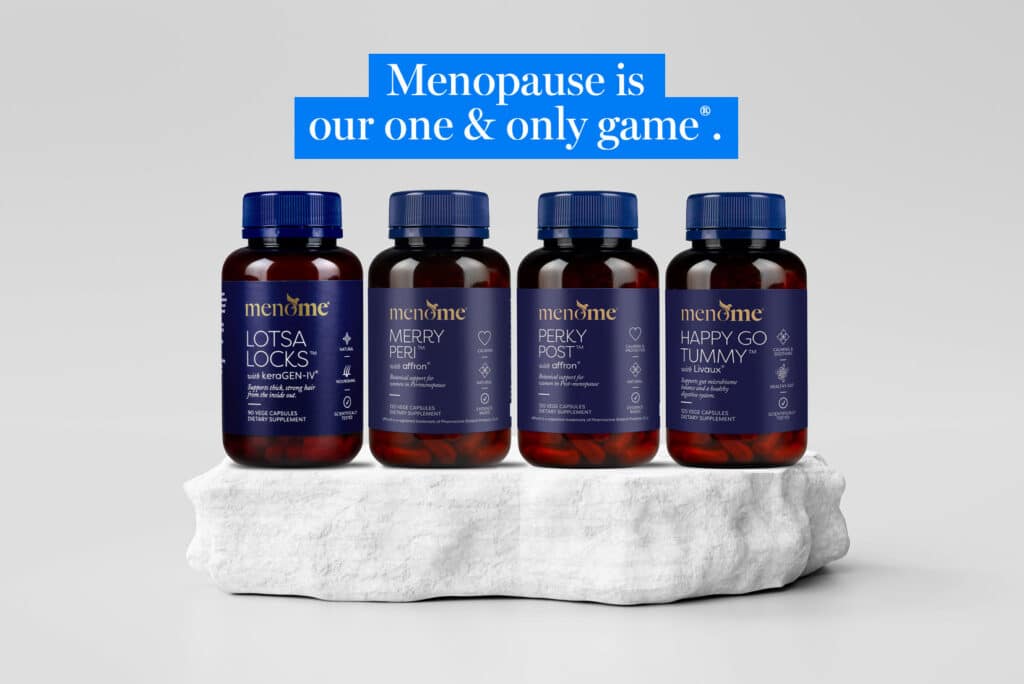We’d heard from many of you that you’re struggling with weight gain and other signs of menopause and that you’d appreciate something that would work beautifully alongside Merry Peri®, Perky Post® and Happy Go Tummy®.
I recommend enrolling beforehand so you can download all the reading material and prepare. However, it doesn’t matter if you run a little bit behind. You can go at your own pace.
5 ways to support your midlife hormones by changing your daily habits
Hormonal chaos can be distressing. Cue the undesirable health effects – hot flushes, insomnia, unwanted breakouts, fatigue, depression, hair loss, low sex drive. And yes, you can definitely experience zits during peri/menopause.
Here are five things you can try to incorporate into your day – along with Merry Peri® and Perky Post® – to help minimise the side effects.
1. Get enough sleep
Before you knock me over the head, I do realise that for some of you this is easier said than done. However, sleep helps regulate hormones and a lack of it can also contribute to weight gain so try:
going to bed earlier (it takes training but it eventually works)
switch off the blue light (meaning screen time) after melatonin kicks in around 9 pm
ditch caffeine, alcohol, refined sugars and processed foods
There’s a big trend for aromatherapy oil diffusers right now so you could pick up one of these and add some lavender essential oil to it. Clary sage is gorgeous at this time. 😊
2. Keep yourself hydrated
Staying hydrated is essential and it doesn’t have to be boring! In addition to pure, clean water, you can add nutrient-dense vegetable juices and antioxidant-rich smoothies. Coconut water is another option that can add variety to your hydration plan. Packed with electrolytes and natural sugars, coconut water may help you rehydrate faster if you’ve been exercising or sweating a lot. Water should be your first choice, though.
3. Work up a sweat
Your skin is your largest organ, and it’s a key player in the hormone and detoxification game. Whenever you exercise, the movement gets your lymphatic system pumping, which helps scoop up excess hormones, cellular debris, and waste into the lymph nodes so they can be excreted either through sweat, urine, or stool. Sweat not only helps regulate your temperature but also pushes toxins and salts out of the body. One caveat here for women in midlife is not to overdo it especially if you’re not a habitual exerciser as it could send you into stress mode, which will be counterproductive to weight management. A 30-minute walk is great.
4. Eat well
What you eat can impact your hormones. For example, too much sugar will spike insulin. Over time, excess insulin production leads to insulin resistance, which stresses the body, triggers an adrenal response and can store food fuel as fat. Cortisol enters the scene, and while some cortisol is good and a must, too much can cause fatigue, stress that’s difficult to escape and weight gain.
Vegetables
Seven to 10 serves of whole, seasonal vegetables daily (organic if possible). Green, leafy vegetables are hormone helpers, onion/leeks, and cruciferous veggies are detox divas! The fibre, vitamins, minerals and antioxidants in all vegetables help support good health and hormone balance.
Green tea
Green tea is rich in antioxidants and can boost your metabolism. Drinking green tea results in reduced insulin levels. The antioxidants contained in the tea can also help regulate oxidative stress.
Protein
Protein is necessary for energy and balanced blood sugar. More is not necessarily better – about 1.1 g per kg of weight per day if you’re not an athlete. The body converts excess protein into fat, so always aim for balance. Organic, pasture-raised meats, wild-caught fish, and eggs from free-range, naturally raised hens are best if you eat animal protein. If you enjoy a plant-based or vegan lifestyle, focus on a variety of colourful vegetables and protein-rich plant foods like quinoa, legumes, seeds, and nuts.
Healthy fats
Hormone health is dependent on healthy fats. Healthy fats include cold-pressed extra virgin olive oil EVOO, avocado, and olives. These help you regulate your blood sugar and provide the building blocks for your hormones. EVOO’s also anti-inflammatory.
NB: The liver shrinks by about 40% at midlife and it’s negatively impacted by processed carbohydrates and saturated fats. So, as we want it to be able to do its job of detoxing chemicals and excess estrogens we choose EVOO over coconut oil because the latter is a saturated fat.
Baby steps
It’s my favourite mantra but baby steps, taken consistently, are the key to supporting your peri/menopause journey. When we’re talking about perimenopause and post-menopause, you’ll be surprised by how much better you may feel simply by incorporating the healthy habits we mentioned.
Click here for the lowdown on the why’s of the 21-Day Hormone Detox with MenoMe®.
Share with a friend
Sign up for for weekly wisdom drops & news 🙂



 Body-smart support for your stage of life
Body-smart support for your stage of life